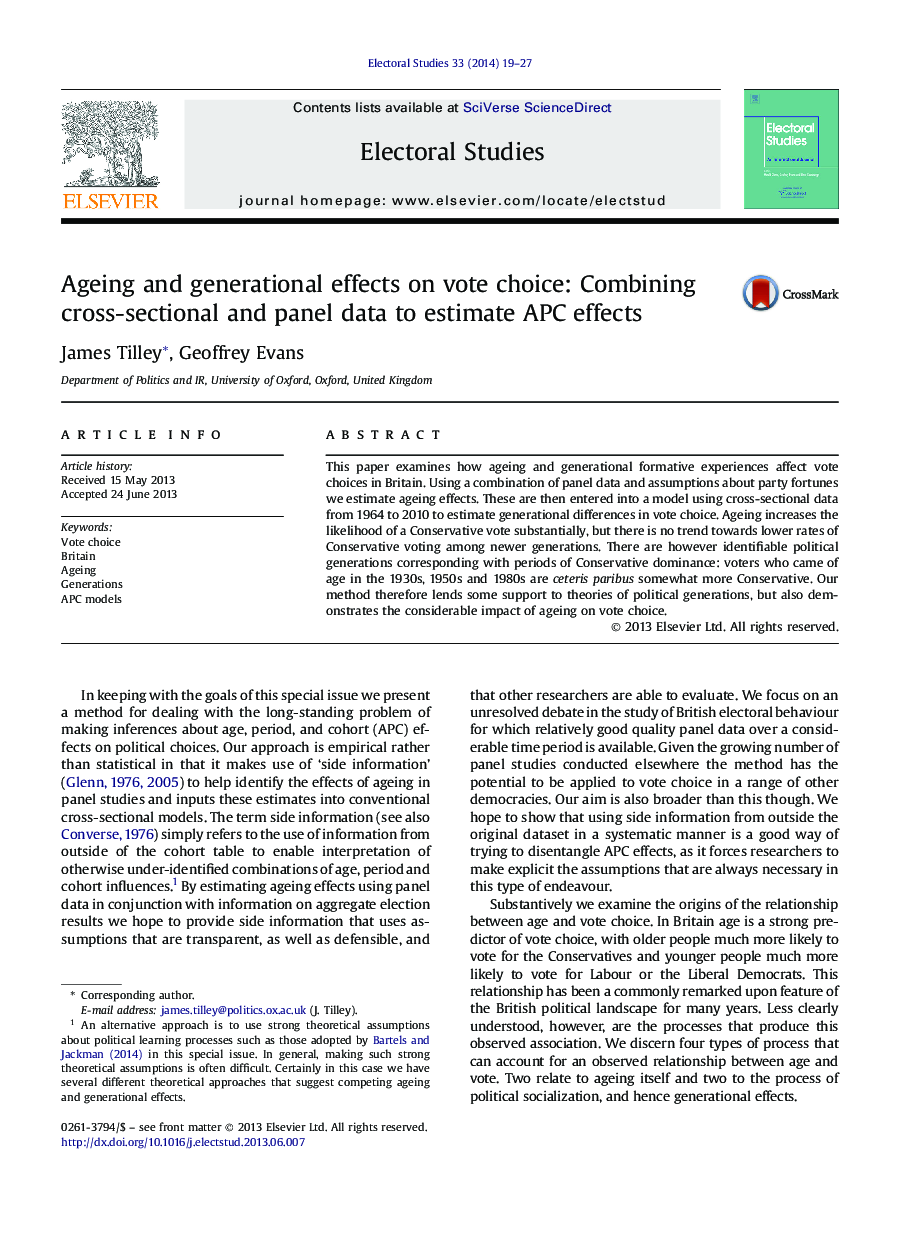| Article ID | Journal | Published Year | Pages | File Type |
|---|---|---|---|---|
| 1051888 | Electoral Studies | 2014 | 9 Pages |
•Combining panel and cross-sectional data helps to identify APC effects.•As people age they become more likely to vote Conservative.•There are identifiable political generations in Britain, but these effects are small.
This paper examines how ageing and generational formative experiences affect vote choices in Britain. Using a combination of panel data and assumptions about party fortunes we estimate ageing effects. These are then entered into a model using cross-sectional data from 1964 to 2010 to estimate generational differences in vote choice. Ageing increases the likelihood of a Conservative vote substantially, but there is no trend towards lower rates of Conservative voting among newer generations. There are however identifiable political generations corresponding with periods of Conservative dominance: voters who came of age in the 1930s, 1950s and 1980s are ceteris paribus somewhat more Conservative. Our method therefore lends some support to theories of political generations, but also demonstrates the considerable impact of ageing on vote choice.
